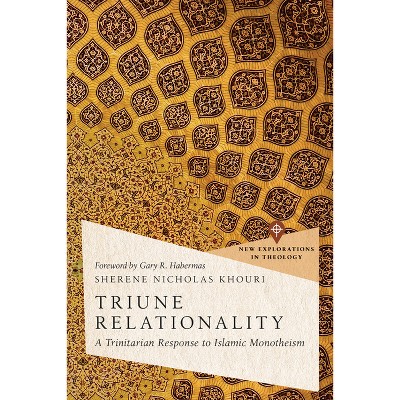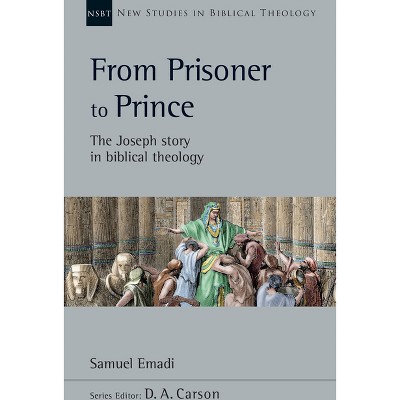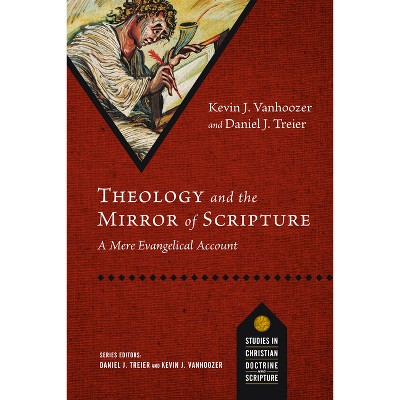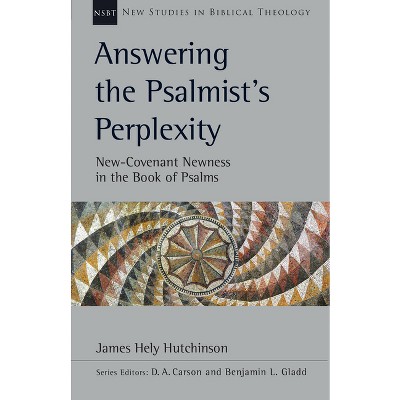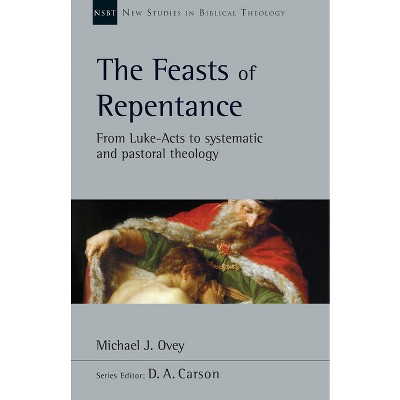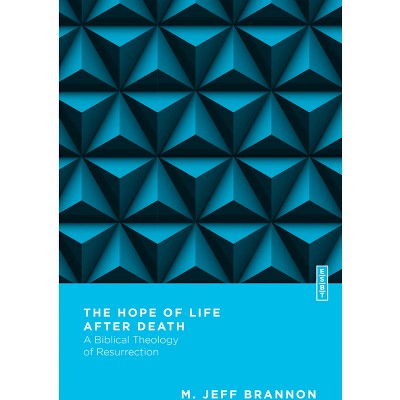Sponsored

The Reality of God and Historical Method - (New Explorations in Theology) by Samuel V Adams (Paperback)
In Stock
Sponsored
About this item
Highlights
- After a flurry of heated debates in the mid-twentieth century over the relationship between faith and history, the dust seems to have settled.
- About the Author: Samuel V. Adams (PhD, University of St. Andrews) is director of graduate studies and assistant professor of theology and social justice at Kilns College in Bend, Oregon.
- 297 Pages
- Religion + Beliefs, Christian Theology
- Series Name: New Explorations in Theology
Description
About the Book
Samuel Adams engages the classic problem of the relation between faith and history from the perspective of apocalyptic theology in critical dialogue with the work of N. T. Wright. He argues that historical and theological scholars must take into consideration, at a methodological level, the reality of God that has invaded history in Jesus Christ.
Book Synopsis
After a flurry of heated debates in the mid-twentieth century over the relationship between faith and history, the dust seems to have settled. The parties have long since dispersed into their separate camps. The positions are entrenched and loyalties are staked out.
This New Explorations in Theology volume is a deliberate attempt to kick up the dust again, but this time as a constructive development of what is now being called "apocalyptic theology." Samuel Adams argues that any historiography interested in contributing to theological knowledge must take into consideration, at a methodological level, the reality of God that has invaded history in Jesus Christ. He explores this idea in critical dialogue with the writings of New Testament historian and theologian N. T. Wright, whose work has significantly shaped the current conversation on this problem.
The Reality of God and Historical Method is a fresh, bold, and interdisciplinary exploration of the question: How is it possible to say that a particular historical person is the reconciliation of the world?
Featuring new monographs with cutting-edge research, New Explorations in Theology provides a platform for constructive, creative work in the areas of systematic, historical, philosophical, biblical, and practical theology.
Review Quotes
"Adams is meticulous in his attention to detail and every point he attempts to makes is very closely argued. He leans upon the prominent theologians of the past, not blindly, but drinks discerningly from the fountains already in place. He turns to Thomas F. Torrance for some of the critical issues--a good choice in this reviewer's opinion--but not exclusively, as testified by the 678 footnotes that support his work. As expected, the bibliography is extensive, with most of the major theologians of the last ninety years included. An Author and Subject Index, and a Scripture Index complete an excellent tool for the serious reader."
--Raymond J. Laird, Evangelical Review of Theology, 2016, 40:3"After a flurry of heated debates in the mid-twentieth century over the relationship between faith and history, the dust seems to have settled. This first volume in the New Explorations in Theology series is a deliberate attempt to kick up the dust again, but this time as a constructive development of what is now being called 'apocalyptic theology.'"
--Interpretation, 70(4), 2016About the Author
Samuel V. Adams (PhD, University of St. Andrews) is director of graduate studies and assistant professor of theology and social justice at Kilns College in Bend, Oregon.
Shipping details
Return details
Trending Non-Fiction






